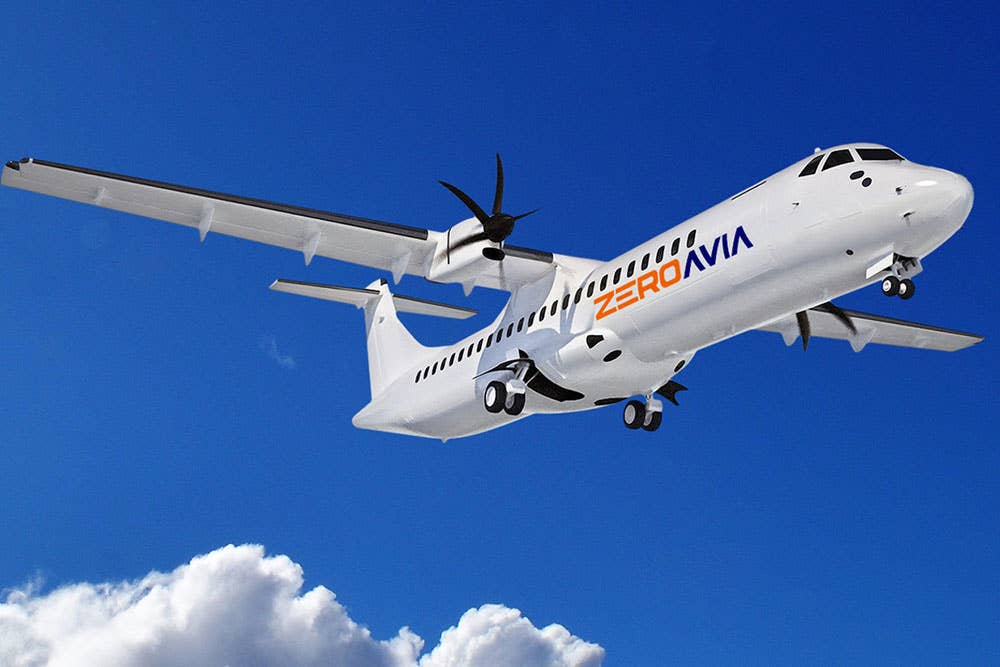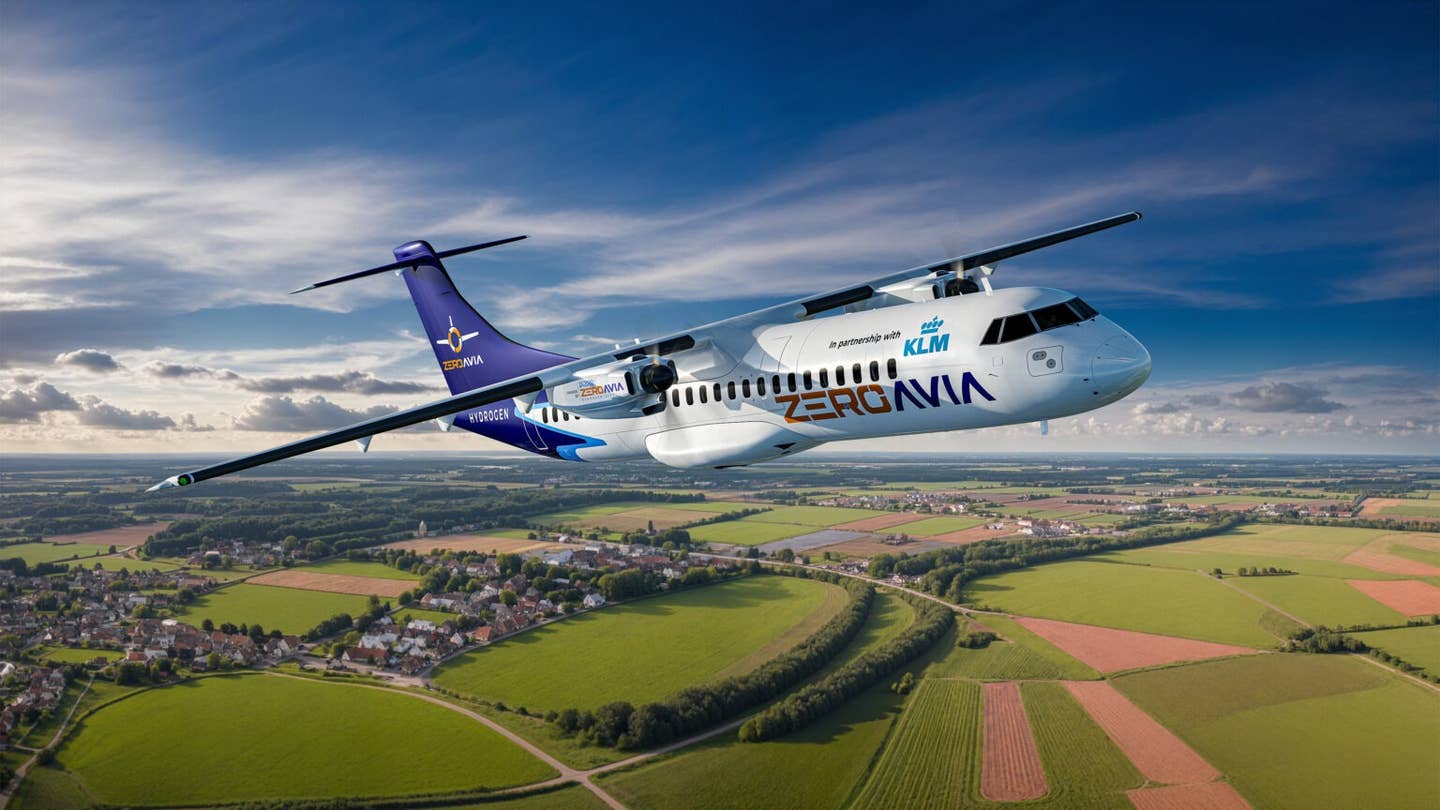ZeroAvia Acquires Hydrogen-Fuel Cell Developer HyPoint
ZeroAvia will incorporate HyPoint’s high-temperature fuel cell technology into development of its hydrogen-electric aircraft powertrain.

U.K.-based hydrogen-electric aircraft powertrain developer ZeroAvia has acquired fuel cell manufacturer HyPoint in a move the company says will accelerate its development of zero-emission power systems for commercial aviation.[Courtesy: ZeroAvia]
U.K.-based hydrogen-electric aircraft powertrain developer ZeroAvia has acquired fuel cell manufacturer HyPoint in a move the company says will accelerate its development of zero-emission power systems for commercial aviation.
Hydrogen-electric powertrains are powered by hydrogen fuel cells that produce electricity without combustion or emissions, similar to conventional batteries. However, unlike car batteries, they don’t run down or need to be recharged as long as they’re fed hydrogen and oxygen.
The acquisition, announced Thursday, paves the way for ZeroAvia to incorporate HyPoint’s high-temperature fuel cell technology into its powertrain, which it calls "a promising avenue for increasing power output and energy density of aviation fuel cell powertrains."
In recent years, the two companies have collaborated in co-developing and testing [High TemperatureEnergy Proton Exchange Membrane] HT-PEM fuel cell technology. ZeroAvia did not disclose the financial terms of the acquisition.
“This acquisition, together with our long-standing partnership with the leading LT-PEM (low-temperature PEM) fuel cell maker PowerCell, puts us in the top position for delivering the most environmentally and economically attractive solution to aviation’s growing climate impact," ZeroAvia CEO and founder Val Miftakhov said in a statement Thursday.
The announcement is the latest in a string of advancements for ZeroAvia's development of hydrogen-powered flight.
In late May, ZeroAvia announced an expanded agreement with Mitsubishi’s (OTC US: MHVYF) Canada-based MHI RJ Aviation Group (MHIRJ) aimed at retrofitting CRJ series jets with zero-emissions powertrains. As part of the collaboration, MHIRJ will provide engineering services, data, and certification support relevant to the CRJ700, enabling ZeroAvia to optimize its hydrogen-electric powertrain to retrofit the airframe.
This past spring, the hydrogen-electric aircraft powertrain developer also entered a partnership with ZEV Station, a hydrogen fueling company, to develop hydrogen refueling infrastructure for airports in California. Under that partnership, the companies will work together initially on a regional airport project aimed at demonstrating how hydrogen-electric propulsion systems can work successfully in commercial aircraft.
“There is enormous potential for airports to act as hydrogen hubs precisely because there will be significant demand,” Arnab Chatterjee, vice president of infrastructure at ZeroAvia said at the time.
Thom Patterson contributed.

Subscribe to Our Newsletter
Get the latest FLYING stories delivered directly to your inbox






